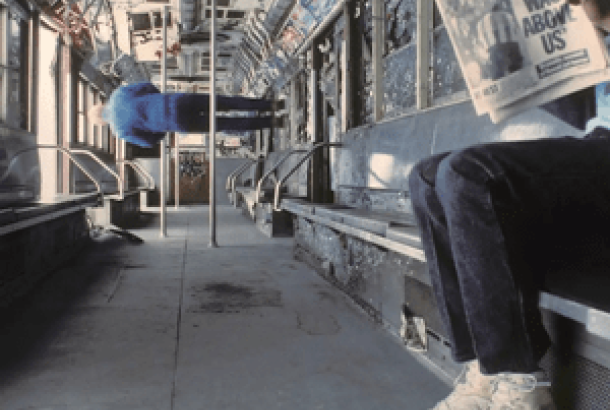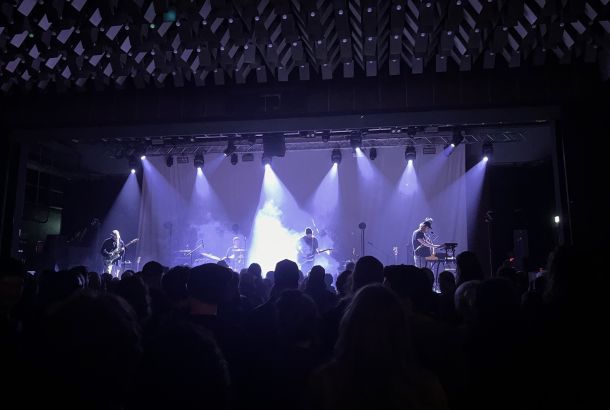A beginner’s guide to Northern Soul

Following the success of DJs Deptford Northern Soul Club, Northern Soul music has made a resurgence amongst young people. Comprised of Will Foot and Lewis Henderson, their first set in 2016 has since led to Deptford’s residence at Moth Club in London and YES in Manchester. If you take a deep dive into their setlists, it’s evident why the genre is so admired.
Motown music had dominated US charts throughout the 1960s, popularising the upbeat rhythm and blues originating from Detroit for most of the decade. However, at the end of the 1960s, there was a notable shift. After significant legislative successes in the civil rights movement and the end of Jim Crow laws in the South, Black Power movements had expanded.
The shift from soul to funk coincided, in which funk music embodied Black empowerment and resilience in a time of crisis for African Americans. Whilst taking influence from soul and rhythm and blues, funk was revolutionary in its political role. It acted as a lens for the voices of Black artists such as Gil Scott-Heron, James Brown, and Kool and The Gang. Yet, as funk took over the US charts, soul was left with a new potential in Britain.
Soul music already had a large presence in UK dance halls in the 1960s. But without the upbeat and fast tempos of soul music, funk was unable to match its US popularity amongst British youth subcultures. This left an opening for opportunity, in which Dave Godin is widely credited for seizing.
After popularising US soul music in the store ‘Soul City’ in London, Godin had coined the term ‘Northern Soul’ by the late 1960s, and the early 1970s saw the uniting of a widespread music culture. The North quickly became the stomping ground for Northern Soul purists, packing out soul dancehalls with throngs of teenagers in wide flared trousers and knit tanks. Several of these teenagers were young male miners who, after long working days, would take stimulants and hit the talcum powder dusted dance floors.
A sea of splits and turns and shuffles, the dancers would be up until the early hours of the morning. To many, it was an opportunity for distraction. From economic unrest to rises in far-right politics, Northern Soul offered a night of escapism from the bleakness of late 1960s Britain.

Photo: Chuck Patch @ Juxtapoz Magazine
But in an age of digital music, the Northern Soul revival is somewhat unable to preserve one of its key principles. ‘Rare soul’ was arguably what made the Northern Soul movement so notable musically. Whilst mainstream movements sought after number 1 hits and global recognition, Northern Soul relished in rarities. The less well-known, the better. As the movement grew, DJs scouted out for more obscure records, on the hunt for the next golden tune that would soundtrack the dancehalls.
Many of Northern Soul’s greatest hits have few pressings, with Heartache Souvenirs by William Powell having only ten supposed copies, and Frank Wilson’s Do I Love You selling for around £25,000 in 2009. As the revival’s magnetism grows, it is only reasonable to assume this fundamental of Northern Soul could be lost.
Whilst Deptford Northern Soul can’t replicate the original Northern Soul movement, their set in YES bar still encapsulates the buzz of soul music. After attending one of the monthly sets, their number one spot in TimeOut magazines 25 best nights out is indisputable. The setlist is an amalgamation of Northern Soul classics and obscure tracks, all of which keeps the Pink Room bustling.
Northern Soul dancers stick to the back, leaving enough room to exhibit their flexible moves. At the front is a packed congregation that dances until the end of the set, applauding Deptford Northern Soul as they leave the stage. With a crowd made up of young adults in the same wide-leg trousers and braces of the 1960s, it’s more than evident that the resurgence is current.

Photo: Deptford Northern Soul Club at YES Bar- Molly Dodge-Taylor @ The Mancunion
It’s no wonder the upbeat tempos of Northern Soul have made a comeback. After the closure of Wigan Casino in 1981, the end of the movement seemed conclusive. Yet the timelessness of Northern Soul’s four/four fast tempos has proven to unify generations, engaging both survival and revival with euphoric nights out. DJs such as Deptford Northern Soul have been a catalyst for this incline, igniting a series of new Northern Soul DJs, as well as drawing attention to smaller soul nights across the North. As the revival expands, there’s no time like the present to start your venture into Northern Soul.
Upcoming Northern Soul events in Greater Manchester:
YES – Deptford Northern Soul, March 18
Band on the Wall- The Twisted Wheel, April 15
Middleton Arena- Northern Live: Do I Love You, June 3
The Club at Bredbury Hall- Northern Soul and Motown, April 29
The Home of D Hallivand – Spitfire Soul Club, April 9







